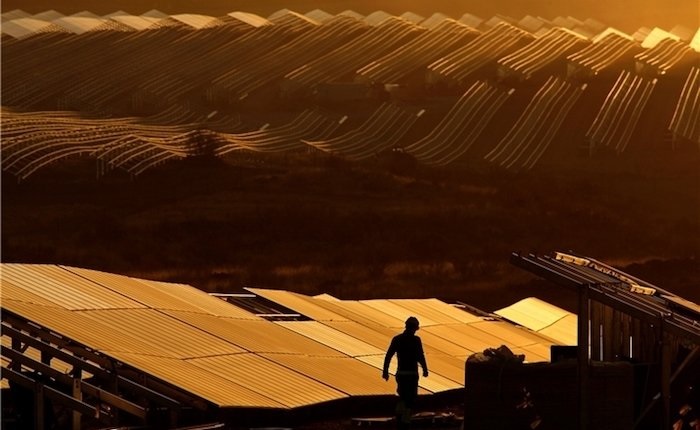Kategori : ELECTRICITY ENERGY NEWS, ENERGY AGENDA NEWS, SOLAR ENERGY NEWS - Tarih : 15 April 2020
A 500 megawatt solar photovoltaic plant, described by Spanish utility Iberdrola as “Europe’s largest,” sent its first megawatt hour of energy to the grid earlier this week, a welcome bright spot for an industry that in the months ahead could experience difficulties brought about by the coronavirus pandemic.
The Núñez de Balboa facility is located in Extremadura, a region in the west of Spain. According to Iberdrola, it has over 1.4 million solar panels and will be able to supply energy to 250,000 people  per year.
per year.
The plant is a collaboration between Iberdrola and Ecoenergías del Guadiana and construction work on the project finished in December last year. Photovoltaic refers to a way of directly converting light from the sun into electricity.
While the commissioning of Núñez de Balboa is an undoubted positive, the solar industry, like many in the renewable energy sector, is facing up to difficulties caused by COVID-19.
Earlier this week, research and consultancy firm Wood Mackenzie said global solar installations for 2020 had been revised down from 129.5 gigawatts (GW) to 106.4 GW, which represents an 18% drop compared to pre-coronavirus levels.
In a blog post toward the end of March, Abigail Ross-Hopper, the president and CEO of the U.S.-based Solar Energy Industries Association (SEIA), wrote that the solar industry was “at risk.”
Citing a survey carried out with the SEIA’s member companies, Ross-Hopper said data showed that “solar companies and workers are losing business and being put out of work by COVID-19.”
This year looks set to pose a number of challenges for the renewables sector, many of them connected to the COVID-19 pandemic, which has caused issues with supply chains and forced some factories to shut.
On Tuesday, Danish wind turbine manufacturer Vestas — a major player in the sector — suspended guidance for 2020, noting that the global spread of COVID-19 and national measures taken to contain it had caused disruptions to installations, manufacturing and its supply chain.
“The situation changes daily and my colleagues’ ability to adapt fast and follow our extensive safety measures have been key to keeping performance in the first quarter in line with expectations,” Henrik Andersen, Vestas’ group president and CEO, said in the statement.
“Unfortunately, the pandemic continues to spread and with no clear prognosis on when key wind markets such as the USA, Brazil and India will recover, we are suspending our guidance due to the poor visibility for the remainder of the year.”






